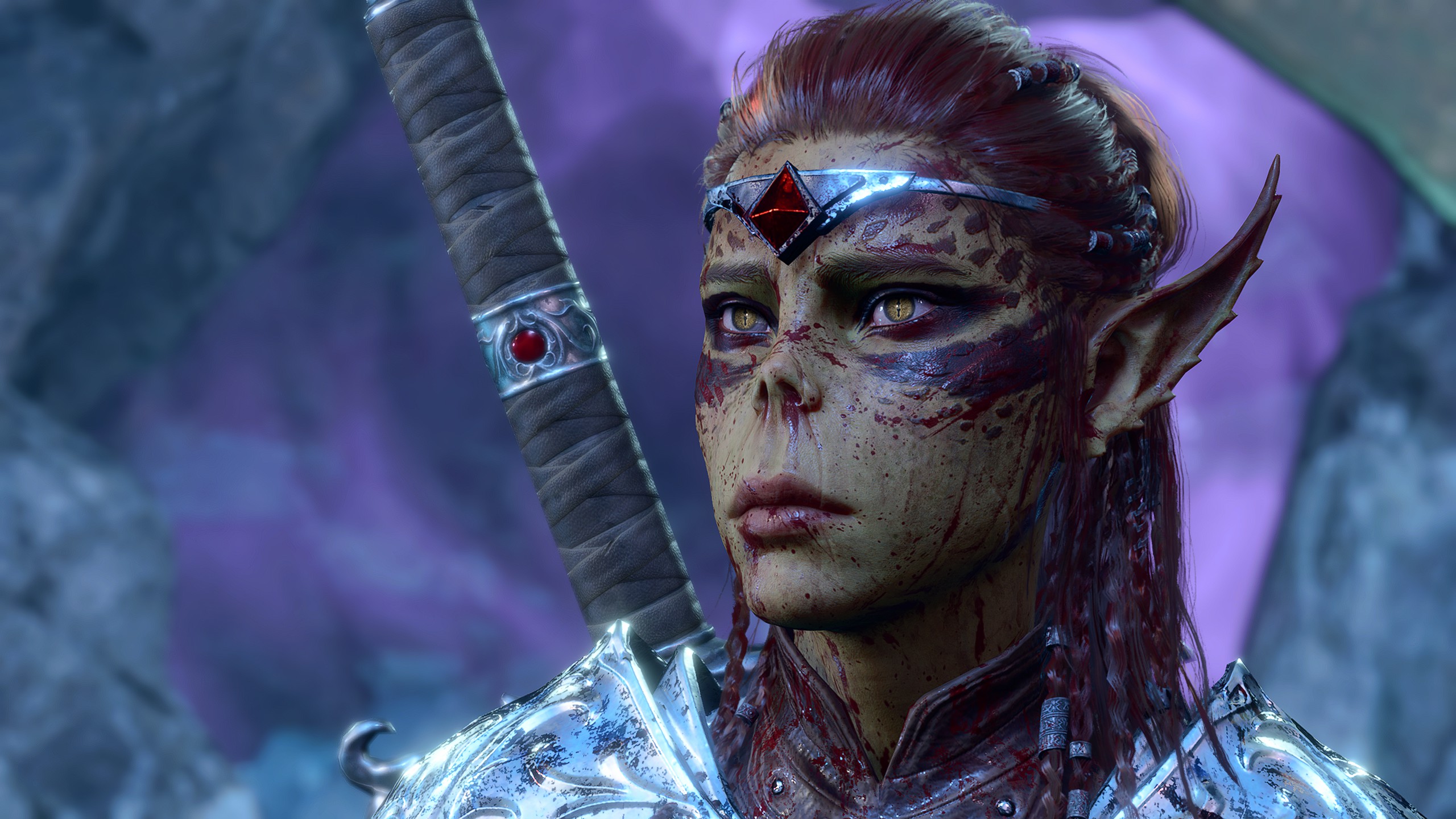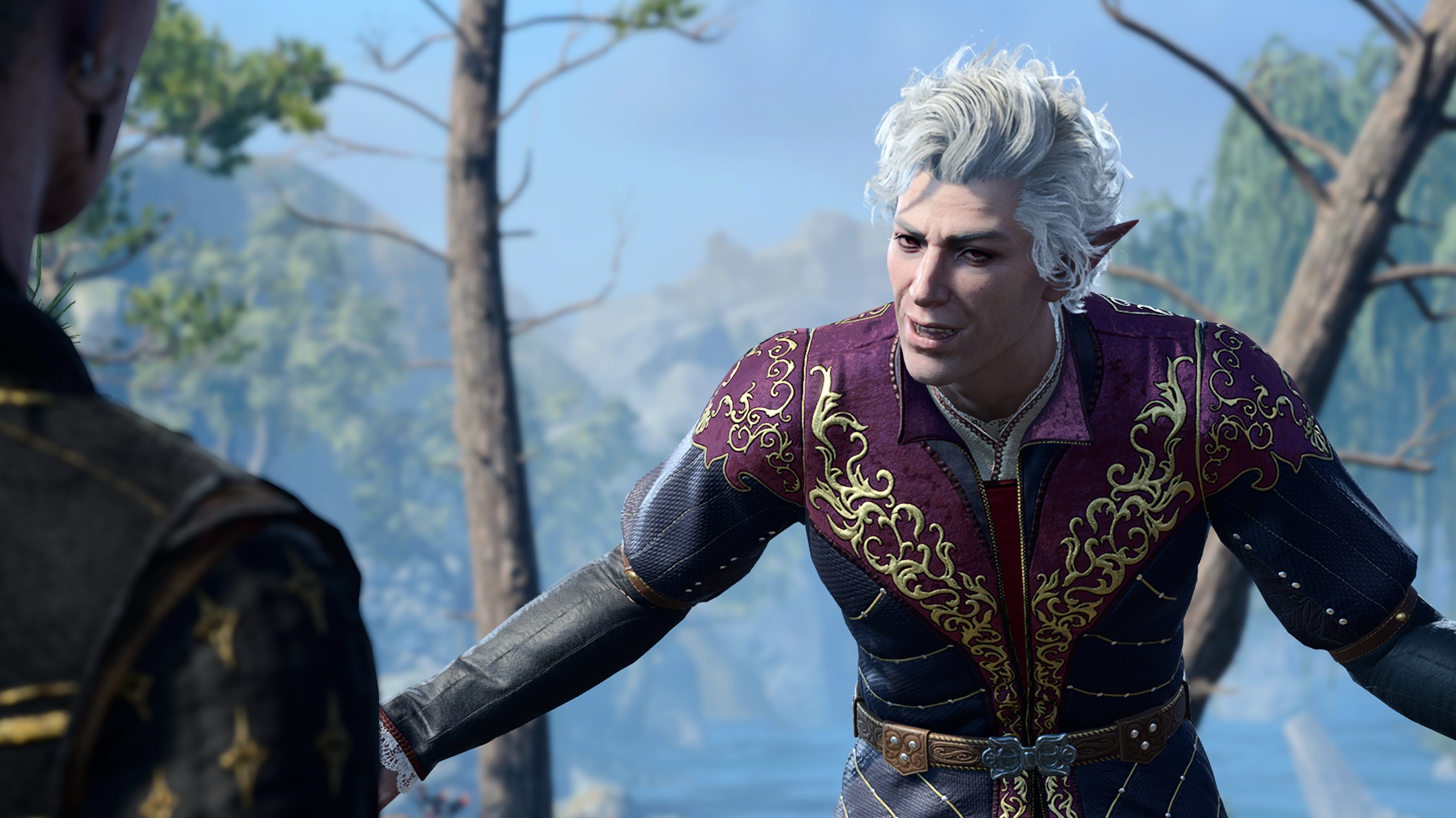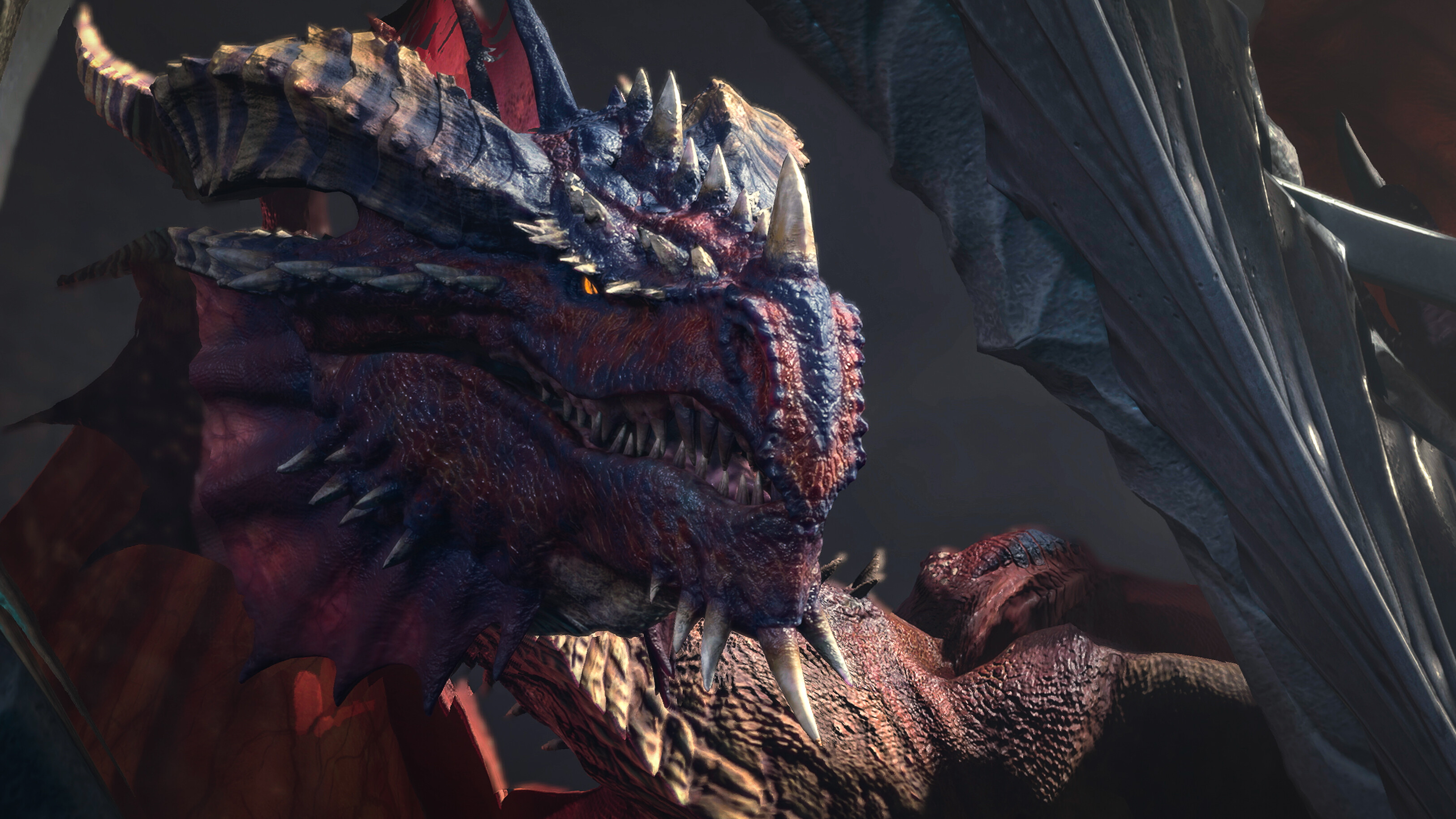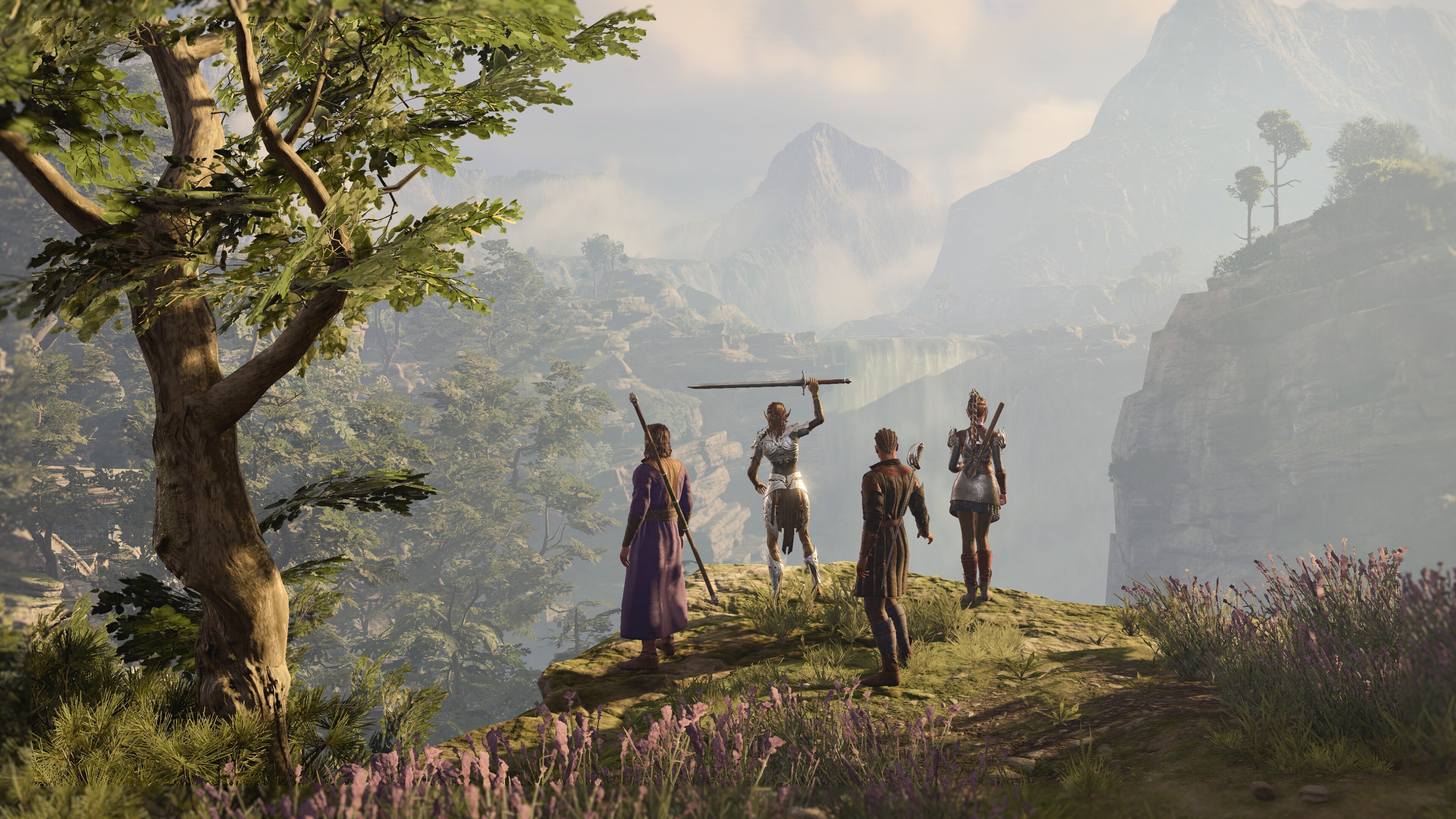
Last month, Larian announced that it's going to "move away from D&D", and suddenly the future of Baldur's Gate seemed a lot murkier. The smash success of Baldur's Gate 3 has firmly revived the classic RPG series, but without Larian to continue to shepherd it, what can we actually expect from any possible sequels or spin-offs?
It's a question Hasbro, owner of Wizards of the Coast and by extension D&D, is in the process of figuring out an answer to. Following yet more success for Baldur's Gate 3 at the BAFTA awards, I talked to Eugene Evans, senior vice president of Digital Strategy and Licensing for Hasbro and Wizards of the Coast, about where the series goes from here. The good news is, a sequel is very much on the cards—but the company is still exploring its options when it comes to what that looks like and what developer might get to create it, and it could still be a long way off.
"We're now talking to lots of partners and being approached by a lot of partners who are embracing the challenge of, what does the future of the Baldur's Gate franchise look like?" says Evans. "So we certainly hope that it's not another 25 years, as it was from Baldur's Gate 2 to 3, before we answer that. But we're going to take our time and find the right partner, the right approach, and the right product that could represent the future of Baldur's Gate. We take that very, very seriously, as we do with all of our decisions around our portfolio. We don't rush into decisions as to who to partner with on products or what products we should be considering."

I would like to think that all of those characters, for the sake of the fans, could potentially appear in future products.
Eugene Evans
Of course it's not just the future of the series itself that's in question. Baldur's Gate 3 also introduced us to what are now some of the most beloved companion characters in RPG history, and there has understandably been some concerns among fans about what might happen to Shadowheart, Astarion, and the rest of the gang following Swen Vincke's confirmation that they're now owned by Wizards of the Coast, not Larian.
"Larian created a much loved cast of characters, who were even celebrated by their nominations, the voice actors behind them and the talent behind them was celebrated at the [BAFTAS]," he says. "And they are now essentially part of D&D canon."
So the question is, what happens to them from here?
"I think it's too early to express specifics and I think that there's a much bigger question about how we approach Baldur's Gate in the future," says Evans. "But I would like to think that all of those characters, for the sake of the fans, could potentially appear in future products."
With how deeply connected fans feel to these characters, there's a real worry in the community that Hasbro might not do right by them in future. I ask Evans if that makes him wary, or whether there's any fear at the company of fan backlash around using them again—but he seems confident about rising to the challenge.
"Oh, we never have any doubt that our community are passionate and will be the first to let us know if they didn't like something that we did! And that's part of what we love about them," he says. "The bar has been set very high, and it's our job to reach and surpass that bar."
Gate keepers

Given Baldur's Gate 3's clean sweep of Game of the Year awards it's tempting to say that the bar isn't just high, it's in the stratosphere. I don't envy any developer the job of stepping into those enormous shoes. I think it's fair to question, too, how well-equipped Hasbro is to foster another smash success in the same vein in the wake of the mass layoffs it performed at the end of last year. According to Swen Vincke himself, there's now "almost nobody left" of the team at Wizards of the Coast that Larian worked with to make Baldur's Gate 3 happen—that seems like a huge loss of experience and expertise, and a difficult decision to explain given the game earned Hasbro about $90 million all told.
But Evans effusively acknowledges what a miracle Larian pulled off and what a boon the game has been to D&D—if there is any bad blood to be found between the two companies post-split, as some have speculated, there's no evidence of it in our conversation.
"They have just done a remarkable job with the product. It's an amazing celebration of D&D," he says. "That team are incredible fans of D&D itself, obviously. And they've done just an amazing job of bringing that world to life, which has not only been celebrated by lifelong fans as we celebrate this 50th anniversary of D&D, but it's also brought many new players to D&D, which has obviously made us very happy."

Those games will appear over the next five years, and they will cover all genres, all platforms. And I think there's room within the D&D universe for many expressions of what D&D is all about.
Eugene Evans
That almost seems an understatement. Though D&D has certainly been building in popularity over the last decade, thanks to everything from a new edition to the rise of actual play streamers, it's hard to think of a time it's felt more mainstream and present than it did last year in the months following Baldur's Gate 3's launch. The sheer scale of its success has to have taken Hasbro by surprise, I put it to Evans—has that triggered a shift in how they view D&D videogames?
"So first of all, the level of engagement doesn't surprise us in some ways, because D&D fans are just so engaged with the hobby," he says. "They love every expression of it, whether it was the movie that was greatly celebrated by the fanbase, or Baldur's Gate 3. But certainly it has demonstrated, or confirmed if you like, the voracious appetite the fans have for content around D&D, in particular video games. Which is good, because we have been investing in new D&D game development ourselves."
It's going to take some time before we see all the fruits of those efforts, but it certainly sounds like fans will have a lot to keep them occupied while they wait for a new Baldur's Gate.
"Those games will appear over the next five years, and they will cover all genres, all platforms. And I think there's room within the D&D universe for many expressions of what D&D is all about, as long as we remain true to the things that people love about D&D and keep it authentic to the IP. And we're committed to doing that."







